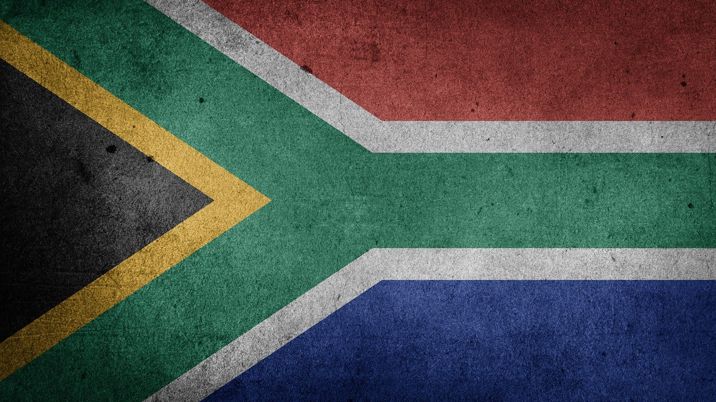
The Federation of African Journalists (FAJ), the Pan-African organisation of the International Federation of Journalists (IFJ), last week officially launched a regional initiative to combat the escalating threat of disinformation and misinformation across Southern Africa. This journalist-led campaign is aimed at preserving the integrity of journalism, restoring public trust in the news media and positioning journalists as vital conduits for media and information literacy.
In collaboration with the United Nations Educational, Scientific and Cultural Organisation (UNESCO), through its Regional Office for Southern Africa (ROSAF), FAJ convened its affiliated journalist unions from Angola, Botswana, Lesotho, Malawi, Mozambique, Namibia, South Africa, Zambia and Zimbabwe in Gaborone, Botswana, from 10 to 12 September 2024. This gathering formed part of a broader capacity-building programme designed to provide journalists with the skills and knowledge necessary to tackle disinformation and safeguard the information integrity.
The initiative, conducted as a Training of Trainers (TOT) programme, is part of a wider continental strategy. It aims to empower journalists with Media and Information Literacy (MIL) skills to verify sources, counter false information and uphold ethical journalism. This effort responds to the growing spread of disinformation and misinformation, which has eroded public trust in journalism and threatened democratic processes in the region. The three-day workshop brought together leaders from Southern African journalist unions, equipping them with the tools to implement these strategies at the national level.
The first day centred on MIL, exploring the impacts of disinformation and misinformation on democratic institutions, public trust and the integrity of information. Day two focused on practical training, including the use of digital verification tools and real-time fact-checking exercises, followed by sessions on ethical and investigative journalism. The final day emphasised regional solidarity and collaboration among unions and partnerships with multilateral institutions and other stakeholders to combat disinformation through MIL-based strategies.
At the close of the workshop, participants adopted a Regional Action Plan to address disinformation and misinformation with a unified approach. This plan prioritises training journalists in MIL, raising public awareness and fostering regional networks for collaborative fact-checking. It also advocates for stronger policies that support ethical journalism and protect journalists from retaliation when exposing disinformation. The goal is to build an informed and resilient journalistic community capable of challenging false narratives while adhering to the highest standards of truth and accountability.
FAJ President, Omar Faruk Osman, reaffirmed the Federation’s dedication to this crucial cause, stating: “The spread of disinformation and misinformation is a direct threat to the role of the media in society. Journalists must be at the forefront, ensuring the public has access to reliable, accurate information. Our role is to ensure that truth prevails and that journalism is not undermined by falsehoods. Through these capacity-building efforts, the federation is empowering journalists across the continent to lead the charge against disinformation, restoring public trust in the media.”
Tim Dawson, the International Federation of Journalists’ deputy general secretary attended the event. He said: “The enthusiasm, determination and talent evident at this gathering was an inspiration. Its conclusion, with commitment to act, a well-considered plan, and the launch of a new regional organisation makes this an exemplar of trades union organisation, not just in Africa, but globally.”
According to the IFJ, this initiative will be followed by similar interventions across Africa’s five regions, focusing on journalist capacity-building, public awareness campaigns and advocacy for stronger measures to promote ethical journalism and an informed public through MIL strategies where FAJ’s drive towards fostering continent-wide collaboration aims to uphold the integrity of information and protect democratic values.
In a further demonstration of regional solidarity and unity, journalist leaders resolved to formalise a regional structure providing a collective voice and representation for their cause. The Federation of Southern Africa Journalists (FESAJ) was officially formed, with its founding leadership comprising: Perfect Mswathi Hlongwane (Zimbabwe) as president, Marafaele Mohloboli (Lesotho) as deputy president, Jemima Beukes (Namibia) as secretary general, Phillimon Mmeso (Botswana) as deputy secretary general and Cristina Maria Patricio Xavier (Mozambique) as treasurer.
“Journalists and their unions in Southern Africa have taken a decisive and significant step towards providing structured leadership on the pressing issues they face. This federation will enable them to be active regional players, with the solidarity support needed to transform the current landscape into one that aligns with the aspirations of working journalists in both national and regional contexts,” remarked FAJ president who underlined in his closing remarks that the formation of FESAJ marks a historic moment for journalists in the region, uniting them in the fight for a fairer, more transparent media environment and empowering them to uphold the highest standards of journalism.
Keep up-to-date with publishing news: sign up here for InPubWeekly, our free weekly e-newsletter.











